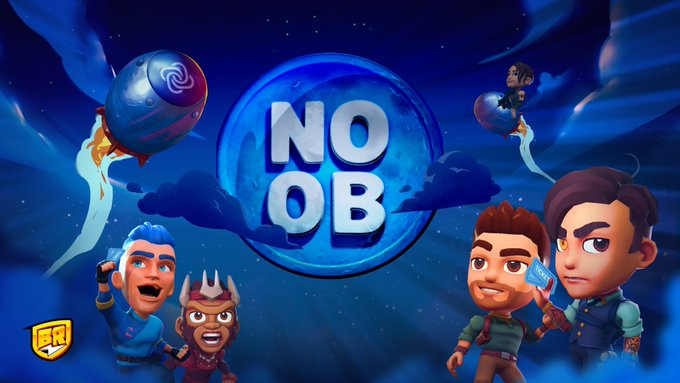Meeting the Gamers: Why Real-Life Connections Matter in Web3
- whatsyourgam3
- Dec 4, 2024
- 3 min read

In this week’s What’s Your Gam3? Twitter Space, we explored the importance of meeting gamers in real life and how face-to-face interactions can shape the future of Web3 gaming. From gaming cafes to conferences and summits, the discussion revealed why in-person events can’t be replicated in a fully digital world.
The Energy of Gaming Events
Aliina, a veteran of gaming conferences, captured the magic perfectly: “The energy that gamers have—whether Web2 or Web3—is so different from any other kind of conference.” Her enthusiasm reflected a shared sentiment among the panel: real-life events aren’t just about networking; they’re about celebrating the culture that makes gaming unique.

Mark AKA KingSnooch, who’s attended events across the globe, pointed out their value: “You learn so much, make so many connections, and meet people you’d never interact with online.” Whether it’s GDC in California or Dreamhack in Atlanta, these events are where relationships are forged, ideas are shared, and communities are strengthened.
The Role of Gaming Cafes in Building Communities
Thrust brought a unique perspective from his experience running a gaming cyber cafe, where he welcomed thousands of players over the years. “Gaming cafes are where you meet real gamers… it’s not just about playing; it’s about the vibes, the competition, the camaraderie.”
For him, gaming cafes, especially in regions like Southeast Asia and South America, are more than just places to play—they’re cultural hubs. He described the sights, sounds, and even smells of gaming cafes with a mix of humor and nostalgia: “You know what it smells like—noobs, sweat, and the occasional fart. But the air is different when you step out—it’s community.”

Founders in the Trenches: Building Trust
One recurring theme was the value of founders and team members showing up at these events. Chef Antonio shared a strong take: “Having a founder in the trenches with the team is always good… it’s a reality check that you just don’t get behind a screen.”
The consensus? Whether it’s a founder or a key team member, having someone present who truly understands the product fosters trust and builds stronger connections with the community. Thrust added, “You need someone trustworthy… someone the community knows and has seen working with the team.”
Is Twitter the Right Place for Gamers?
The panel took a hard look at whether crypto Twitter accurately reflects the broader gaming audience. Chef Antonio didn’t mince words: “Most gamers aren’t even on Twitter. They’re on YouTube, Twitch, Discord—places where gameplay happens, not where people argue about tokens.”

Aliina pointed out that in Web3, many key figures have minimal online presence: “Some of the smartest people I’ve met—managing millions of dollars—don’t even have a Twitter account. You’d think they were bots from how quiet they are online.” For these audiences, real-life events become even more critical.
IRL Events: A Must for Web3 Gaming?
The conversation circled back to a key question: Can Web3 gaming succeed without in-person events? The panelists agreed that these gatherings are essential—not just for building relationships but also for showcasing games in action.
Mark shared an exciting trend: “We’re seeing gaming cafes and arenas pop up in places like New York City… safe spaces where kids can play, connect, and escape the challenges of their environment.” This grassroots approach mirrors what’s already happening in regions like Brazil and the Philippines, where gaming cafes are central to the culture.

Thrust emphasized the untapped potential of gaming centers, saying, “You can’t fake this kind of community… real gamers, real feedback, real traction.” His passion for these spaces highlighted their role as natural bridges between digital and physical worlds.
Final Thoughts: Why Meeting Gamers Matters
Whether it’s the energy of conferences, the community vibes of gaming cafes, or the strategic importance of founders showing up, one thing was clear: meeting gamers in real life makes a difference. As Chef Antonio put it, “Web3 isn’t just about the tech; it’s about building friendships, giving people hope, and fostering belonging.”
The Web3 gaming space is evolving, but one thing remains timeless: the joy of gaming together. Whether online or face-to-face, the connections we make are what keep this industry alive and thriving.











Comments